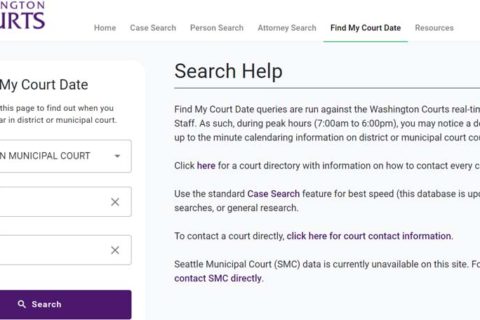If someone engages in a pattern of criminal activity in connection with an enterprise or organization, of course they can be charged with RICO violations. It is known that there are at least 35 crimes under the RICO Act.
However, there are so many people who do not know what any crimes that fall under the RICO Act. If you happen to get charged with RICO Act, of course you definitely committed a crime included in the RICO Act. Let’s find out what crimes are included into the RICO Act and how the RICO Act convicts the offenders!

Why Do You Get a RICO Charge?
As we’ve mentioned, you definitely get a RICO charge, since you committed a crime under the RICO Act. Need to know, a violation of RICO will happen when someone, in connection with a corporation, engages in a pattern of racketeering activity.
It may be one of the primary points of contention which people have with RICO who do not spell out explicitly which groups are under close scrutiny. If it doesn’t do so, it actually holds every type of company liable for any unlawful acts which it may take in connection with or on its behalf.
Here’s a list of crimes why you get a RICO charge!
Larceny Crimes
-
- Robbery or theft
Crimes Involving People
-
- Murder
- Kidnapping
- Slavery
- Human smuggling
- Tampering with a witness
Money-Related Crimes
-
- Multiple kinds of fraud
- Embezzlement
- Money laundering
- Bribery
- Paying for murder for hire
- Gambling
- Counterfeiting
- Extortion
- Collection of unlawful debt
Other
-
- Criminal copyright infringement
- Arson
- Acts of terrorism
- Obstruction of justice
- Trafficking controlled substances
- False use of a passport
For more information, those crimes are actually known as ‘predicate’ offenses. The person who is charged under RICO at least committed two predicate crimes within 10 years through the enterprise. In this case, an enterprise is very required which may be a crime family, a street gang or a drug cartel.
Well, it could also be a corporation, a managed care company or a political party. Furthermore, the enterprise only needs to be a discrete entity. You should know that an enterprise is not the same as an individual.
Thus, a corporation may be the enterprise through which individuals commit crimes, but it cannot be both an enterprise and an individual.
Under the RICO Act, it’s not legal to engage in activities that directly or indirectly disturb with foreign or interstate commerce. Evidence of a pattern of behaviour is really required, in order to convict any of the crimes under RICO. In general, it means that two or more extortion cases should occur within a ten-year span for it to work.
The criminal RICO statutes are determined for prison terms of 20 years and severe financial penalties. Aside from that, the RICO Act also allows prosecutors to include assets. So, they’re not able to be carried out of the country before judgement.
Criminal Penalties in RICO Crimes
Basically, the RICO Act lets federal authorities charge individuals or groups of individuals with racketeering, even if they did not conduct the racketeering acts themselves. Aside from that, it also provides for more serious criminal and civil penalties for illegal acts allegedly carried out on behalf of a criminal organization.
You might be sentenced to up to 20 years in prison for each count of racketeering if you’re convicted of racketeering under the federal RICO Act. Or if the RICO charges include any predicate crimes which are punishable by life imprisonment, such as murder, you may also be punished to life in prison.
In this case, the court will also be able to impose a fine of up to $250,000 or twice the amount of the illegal profits that are earned as a result of the racketeering offense. Aside from facing a lengthy prison sentence for a conviction under the RICO Act, you might also be subject to asset forfeiture that means the government can seize any money or property associated with the alleged racketeering activity.
In the case of the prosecution, you can prove that you earned the money or property from the illegal activity, bought the property using the proceeds from the illegal activity or used the money or property to carry out the illegal activity. Additionally, you might also be forced to forfeit any interest that you hold in the business or enterprise as a result of your racketeering charges.
Furthermore, the RICO Act also set for a civil cause of action, allowing individuals whose business or property was damaged or adversely affected by the alleged criminal enterprise to sue the racketeer in civil court.
If you’re convicted of racketeering in federal criminal court, you may be likely found liable in civil court. It means that you might end up paying treble damages or damages of up to three times the actual damages.
Defense Strategy for RICO Cases
We all know that racketeering is an absolutely serious criminal charge, but only since you’ve been accused of violating the RICO Act does not mean the prosecution can prove that you conducted the crime.
As in any criminal case, you may be legally considered innocent until proven guilty. It’s up to the prosecution to prove each element of the racketeering crime beyond a reasonable doubt. Well, it’s also up to you, however, to maintain an established criminal defense attorney who is familiar with the federal RICO statute and who really knows how to defend against racketeering charges. Of course, you can provide the strongest possible defense in your case.
Well, there are several potential defense strategies a skilled criminal defense attorney that can use to defeat a RICO charge, including:
-
- You didn’t conduct or conspire to commit the crimes in question
- Your actions were not a criminal
- You didn’t knowingly act with the intent to involve in criminal activities
- There was not a pattern of racketeering activity
- You were not acting on behalf of a criminal enterprise
- The evidence against you was gained as part of an illegal search and seizure
- The prosecution lacks sufficient evidence to meet its burden of proof
- The crimes engaged in the racketeering charge were unrelated

A bookworm and researcher especially related to law and citizenship education. I spend time every day in front of the internet and the campus library.





